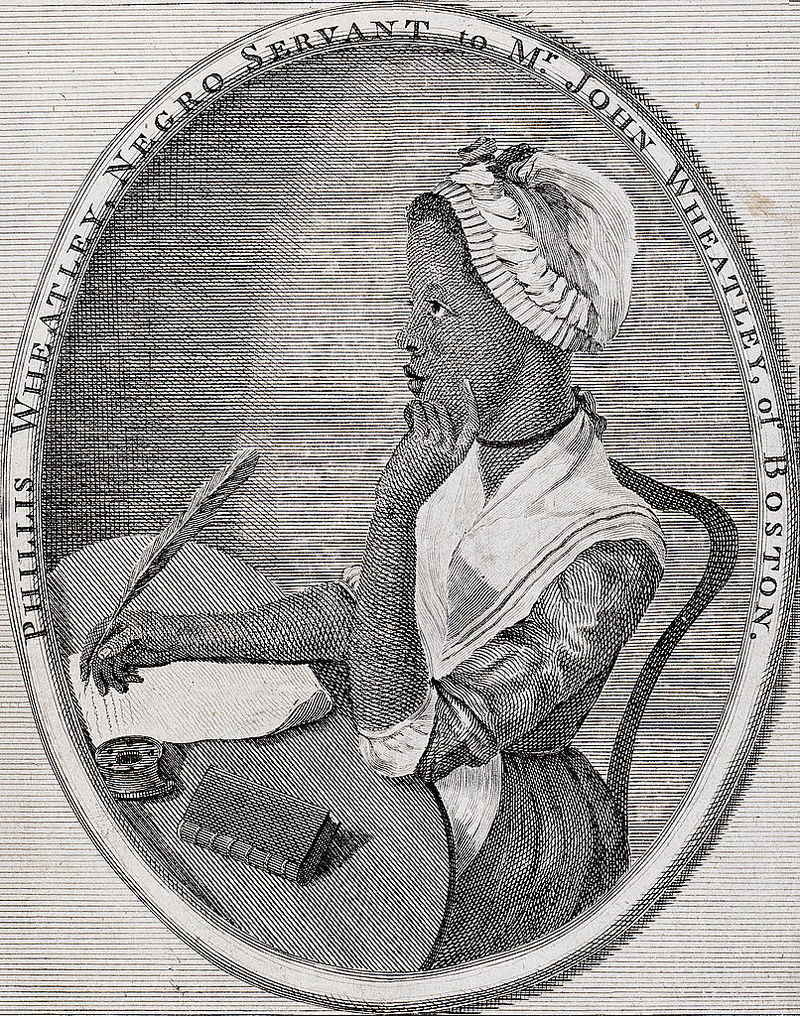Poet and Slave
February 8, 2018
IN RECOGNITION of Black History Month, I offer two poems by an African American: Phillis Wheatley (1753-1784), a woman sold into slavery in West Africa who ended up as a domestic maid in Boston. I had never heard of Wheatley until recently. She once expressed the opinion that she was glad to have been enslaved because through it she was introduced to Christianity. Yikes!!
ON BEING BROUGHT FROM AFRICA TO AMERICA
Twas mercy brought me from my Pagan land,
Taught my benighted soul to understand
That there’s a God, that there’s a Saviour too:
Once I redemption neither sought nor knew.
Some view our sable race with scornful eye,
“Their colour is a diabolic dye.”
Remember, Christians, Negroes, black as Cain,
May be refin’d, and join th’ angelic train.
Wheatley’s masters in Boston, John and Susanna Wheatley, devoted considerable effort to educating her and eventually emancipated her.
“By the age of 12, Phillis was reading Greek and Latin classics and difficult passages from the Bible. At the age of 14, she wrote her first poem, “To the University of Cambridge, in New England.” Recognizing her literary ability, the Wheatley family supported Phillis’s education and left the household labor to their other domestic slaves. The Wheatleys often showed off her abilities to friends and family. Strongly influenced by her studies of the works of Alexander Pope, John Milton, Homer, Horace and Virgil, Phillis Wheatley began to write poetry.” Source
My second poem by Wheatley is also at odds with American mainstream history. It expresses Loyalist sentiments toward King George III and was written after he repealed the Stamp Act. (Tens of thousands of Loyalists fled America after the close of the Revolutionary War.) The monarchist view and touching loyalty of the poem are nothing less than political heresy — another possible reason why Wheatley is little known.

TO THE KING’S MOST EXCELLENT MAJESTY
YOUR subjects hope, dread Sire—
The crown upon your brows may flourish long,
And that your arm may in your God be strong!
O may your sceptre num’rous nations sway,
And all with love and readiness obey!
But how shall we the British King reward!
Rule thou in peace, our father, and our lord!
Midst the remembrance of thy favours past,
The meanest peasants most admire the last.
May George, belov’d by all the nations round,
Live with heav’ns choicest constant blessings crown’d!
Great God, direct, and guard him from on high,
And from his head let ev’ry evil fly!
And may each clime with equal gladness see
A monarch’s smile can set his subjects free!
And to think, Wheatley never even went to school, she never spent 12 long years of her life in a cinderblock prison known as public school, and yet she was able to produce these fine verses.
Wheatley tragically died at the age of 31 after marrying a man who was imprisoned for debt. She never got tenure as a black history professor or made much money from her poems. After she was freed, she still worked as a servant. She faced the lot of most poets: poverty laced with idealism. May her memory live in the hearts of Americans!
— Comments —
George Weinbaum writes:
This reminds me of 1974’s “Rumble in the Jungle” in Kinshasha, Zaire. Upon returning to the U.S., Muhammad Ali was asked if he intended to reside in Africa. Ali answered, “I’m awfully glad my grandpappy got on that boat.” Yes, The Donald is correct Africa is a ….. for the most part.
Slavery was good for many Blacks. It got them out of Africa.

